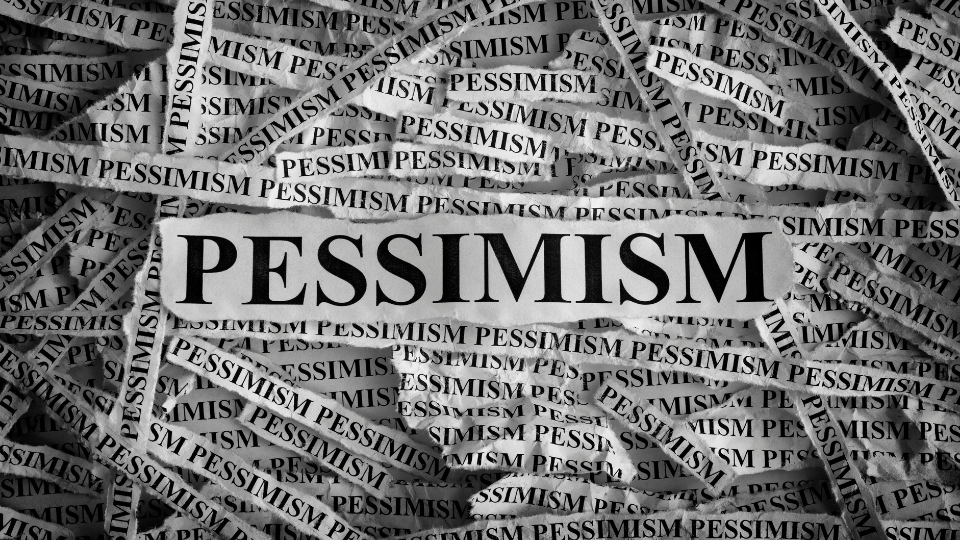
Beaird Harris Among America’s Top Registered Investment Advisors
Beaird Harris has been ranked as one of Financial Advisor Magazine’s 2024 America’s Top RIAs!


Over recorded time, things have generally gotten better for most people, most of the time. That applies across all of humanity and certainly to the vast majority of our clients. Despite a phenomenal track record of things getting better, an increasing number of people seem pessimistic. In a recent article in the New York Times, historian Deirdre McCloskey said, “For reasons I have never understood, people like to hear that the world is going to hell.”
There’s a lot of evidence to support this view and pessimism isn’t just more common than optimism, it actually sounds smarter. It’s intellectually stimulating and more people pay attention to it. In some ways, it makes the optimist look ignorant, even though the actual track record of history solidly favors the optimist!
Through most of time, history has admired not the man who hopes when others despair, but the man who despairs when others hope. If you say the world has been getting better, you’re at risk of being labeled as naïve or ignorant. If you predict it will continue to get better, you might even be called a lunatic. On the other hand, if you say we’re doomed, you might get a Nobel Prize!
This attitude also spills over into the investment world. A bullish investor sounds reckless while the bearish investor sounds like a sharp, well-researched intellect. This is true despite the S&P 500’s 18,000 fold increase over the last century; a century that saw more than its share of pandemics, depressions, wars and natural disasters!
The real question is, Why does pessimism sell? Nobel Prize winning psychologist Daniel Kahneman has shown that people respond more strongly to loss than to gain. In nature, if an organism treats threats as more urgent than opportunities, they have a better chance to survive and reproduce. It’s within these roots that pessimism becomes attractive and of course the media does everything humanly possible to fan these flames.
We’ve said on many occasions that fear is not an investment philosophy and you cannot build a successful long-term financial outcome based on fear. In truth and throughout history thus far, optimism is a much better strategy. But for optimism to work, you must have Faith, Patience and Discipline, and we do!
BLOG DISCLOSURE: Please remember that past performance may not be indicative of future results. Different types of investments involve varying degrees of risk, and there can be no assurance that the future performance of any specific investment, investment strategy, or product (including the investments and/or investment strategies recommended or undertaken by Beaird Harris Wealth Management, Inc.), or any non-investment related content, made reference to directly or indirectly in this blog will be profitable, equal any corresponding indicated historical performance level(s), be suitable for your portfolio or individual situation, or prove successful. Due to various factors, including changing market conditions and/or applicable laws, the content may no longer be reflective of current opinions or positions. Moreover, you should not assume that any discussion or information contained in this blog serves as the receipt of, or as a substitute for, personalized investment advice from Beaird Harris Wealth Management, Inc.. To the extent that a reader has any questions regarding the applicability of any specific issue discussed above to his/her individual situation, he/she is encouraged to consult with the professional advisor of his/her choosing. Beaird Harris Wealth Management, Inc. is neither a law firm nor a certified public accounting firm and no portion of the blog content should be construed as legal or accounting advice. A copy of the Beaird Harris Wealth Management, Inc.’s current written disclosure statement discussing our advisory services and fees is available for review upon request.

Beaird Harris has been ranked as one of Financial Advisor Magazine’s 2024 America’s Top RIAs!

In times of high inflation, managing lifestyle creep is crucial to maintaining financial stability and achieving long-term financial goals.

Whether you’ve been investing for decades or are just getting started, at some point you’ll likely ask yourself some fundamental questions. The 10 listed here…
Schedule a complimentary call today. We’ll help you get started and learn more about Beaird Harris.